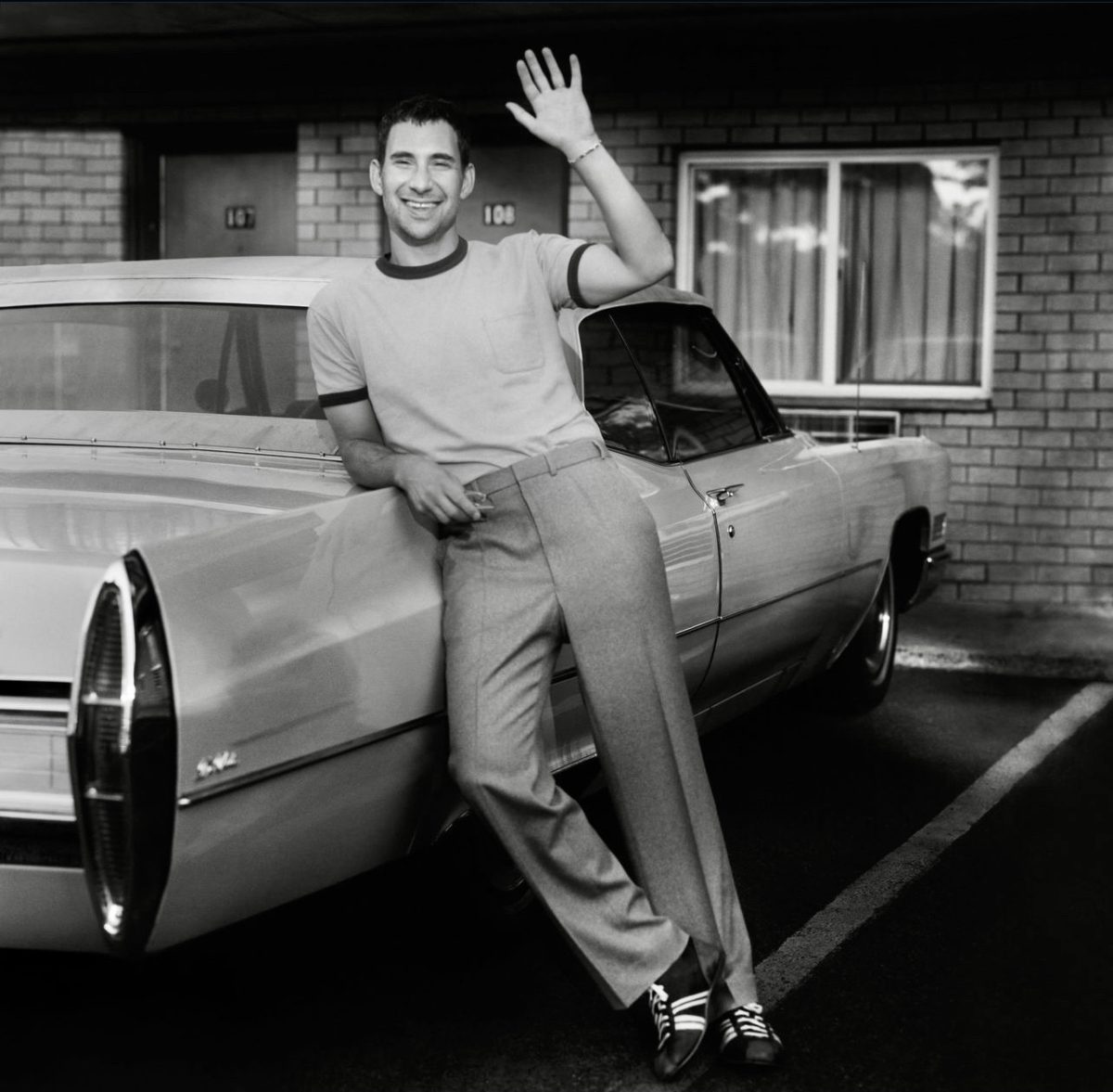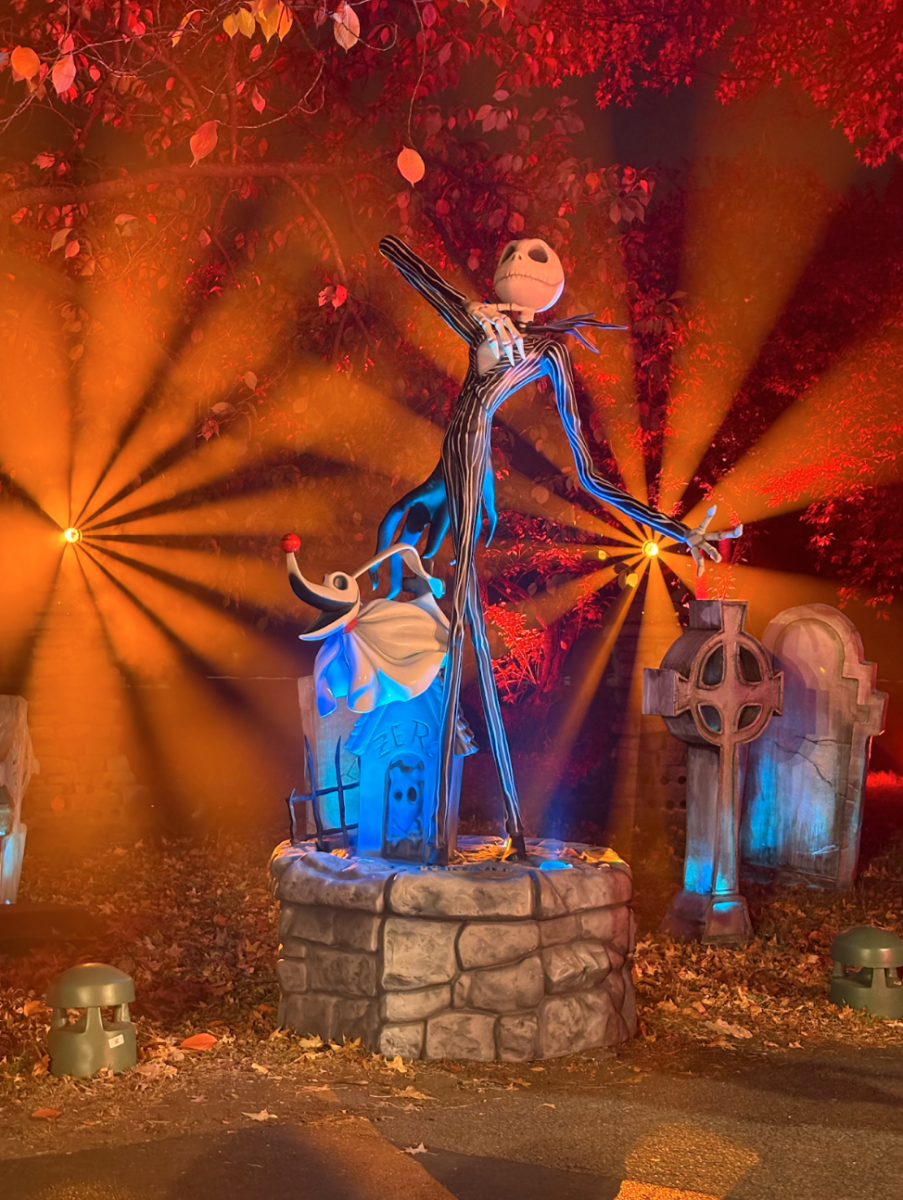Bleachers’ latest album isn’t for everyone — and that’s not just some cliché. The eponymous fourth album from the decade-old indie pop band “is for the lonely, the tired on a wire, the born strange desired.” This album is for the fans who have been there from the beginning and can recognize every easter egg in that laden line.
After the junior slump of 2021’s “Take the Sadness Out of Saturday Night,” I was a little worried that my favorite band had lost its magic, the fervent energy that is “supposed to sound like a person going crazy in a room alone — that’s what it is.” Frontman Jack Antonoff has been busy being a super producer for the industry’s biggest names, and I and other fans worried that maybe he had gotten too caught up with others’ work and lost his own sound. With the release of their first single this past September, the bombastic, joyful “Modern Girl,” I wondered, “Is Bleachers finally back?”
Where the last album was muddled, “Bleachers” is a rambling exploration of how love can exist with disillusionment and how reaching mental stability is also tied with the desire to self-destruct. This album has fewer of those songs that you turn up till your ears ache as you speed down the highway, but they are powerful in their own right. “Me Before You” is probably the best example of this feeling — a consistent thrum of energy that recognizes how far Antonoff has come with where he has been. Other album highlights are the wonderfully nonchalant “Alma Mater,” the quirky and chaotic “Jesus is Dead” and “Isimo,” whose richness of sound and depth of meaning make it the perfect soundtrack for a late-night talk with your best friend.
That said, Bleachers is not “back,” as I wondered in September. They’re something better, and this is epitomized in the ninth track, “Self Respect.” This track is all about looking in the mirror and thinking all of our worst thoughts and the vulnerability that comes with sharing them with others, hoping to feel a little less alone. “Self Respect,” despite its desperation, is a tendril of hope: it’s the first crocuses emerging from the ground; it’s a cold beam of sunlight on a March morning. “Self Respect” is about the tiresomeness of trying to be better, of wanting to give in, and yet in light of this need that at times feels instinctive, Antonoff soars, “I’m still here and I’m still playin’!”
Despite the thematic and sonic differences between this album and its predecessors, one fact unites them all: they are best when they are performed live.
Last Wednesday, March 6, I had the opportunity to see the band perform at the Bowery Ballroom — an intimate show of only 500 people to celebrate the release of their upcoming album. The event was announced just a week prior, and I only found out about it because I randomly checked my spam mailbox while sitting in a cubicle at work. I frantically ordered the tickets, nervously looking over my shoulder and completely high on adrenaline when I saw the tickets arrive in my inbox.
Though my friend and I were drenched in the rain as we waited outside the venue and then damp and slightly moldy the rest of the night, none of that mattered when Antonoff and the rest of the band came out. While the band has both grown in size and following and the mystique of Antonoff as a pop music kingpin has soared, Bleachers still performs with the energy of your older brother’s band playing in your garage — except they have the talent to back it up. While they are a band with millions of followers, they still have the goofiness of your older brother’s band, too: Antonoff paused after the opener to switch out his Doc Martens for the bowling shoes he sports on the album’s cover because his boots were too “squishy.”
What’s most extraordinary about Antonoff’s live performances is that he never forgets the community that propelled his band to success. He remembers that Bleachers is a group effort, that we’re all united by feeling “dissonant in your life and [hoping to] find something you recognize.” Antonoff, a master of building setlists, crafted a 90-minute set that took fans on a winding journey that melded the band’s characteristic vulnerability of hope with the raucous admittance that it’s okay to feel lost, too.
The first thing Antonoff ever told us through his Bleachers microphone is that he wants to get better. In the band’s fourth album, he finally is.







































































































































































































